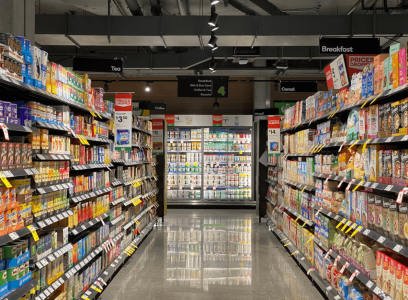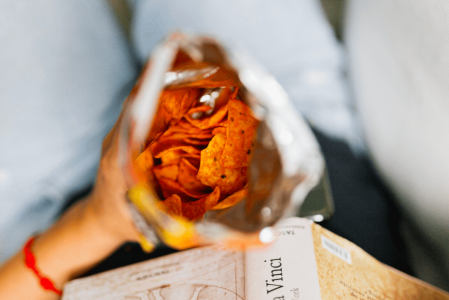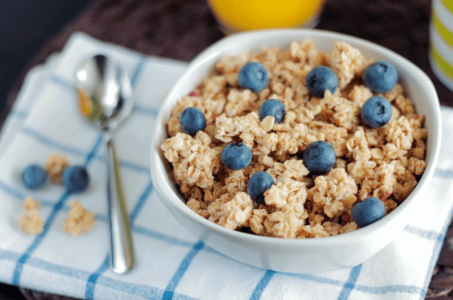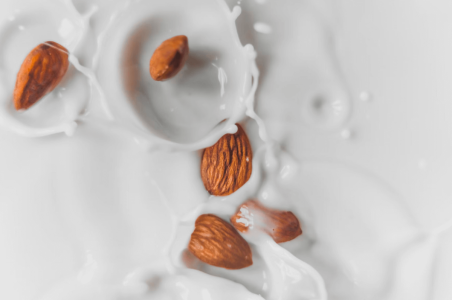Revealed: 8 Surprising Foods You Thought Were Healthy, But Are Actually Ultra-Processed
- Replies 8
It's no secret that the key to good health is a balanced diet. But for many of us, understanding which foods are healthy is easier said than done.
After all, terms like 'junk foods', 'discretionary foods', and 'foods high in sugar, salt, and fat' don't always make it clear what's good to eat and what's not.
For example, some fresh fruits are high in sugar—but that doesn't make them unhealthy. And food products such as 'no added sugar' soft drinks and muesli bars fortified with vitamin additives aren't necessarily nutritious.
So what's the solution?

According to experts, the key indicator of nutrition can be found in the amount and type of processing a food item goes through.
Food can go through processes like chemical modification, moulding, hydrogenation, and extrusion. While some processing can make food more convenient and safer to eat, too much processing often means foods are nutritionally deficient.
Unfortunately, many 'healthy' supermarket products are ultra-processed—and it's often hard to spot them.
In this article, we'll help you identify 8 everyday foods that are actually ultra-processed, contrary to popular belief, as well as some tips for avoiding them.

First, we have to ask: What is an ultra-processed food?
Ultra-processed foods are made using industrial processing methods and contain ingredients you wouldn't usually find in your pantry. These ingredients are commonly called industrial food substances and cosmetic additives.
Industrial substances include processed versions of protein and fibre (such as whey powder or inulin), maltodextrin (an intensely-processed carbohydrate), syrups, and hydrogenated oils.
Cosmetic additives such as colours, flavours (natural or artificial), non-caloric sweeteners, spice enhancers, and thickeners are all used to make the food more appealing and tasty.

Ultra-processed foods aren't just a fancy name for junk food—although of course soft drinks, chocolate, and chips all fit in this category. There are plenty of everyday items that most people do not know are ultra-processed, such as:
1. Breakfast cereals
Many people think they are making a healthy choice by choosing a cereal that is marketed as 'healthy'. However, these products are often ultra-processed and contain ingredients like maltodextrins, processed proteins and fibres, and artificial colours.
This is in contrast to oats, which contain only one simple ingredient: oats! So, if you're looking for a truly healthy breakfast option, consider starting your day with a bowl of oats.
2. Protein and muesli bars and balls
Just like cereals, protein and muesli bars and balls are often marketed as healthy snacks, but the reality is that many of them are ultra-processed. They may contain ingredients like processed fibres and proteins, inverted sugars (which are industrial versions of sugar), and non-caloric sweeteners.
So, next time you're reaching for a snack bar, be sure to check the ingredients list.

3. Plant-based 'milk'
Dairy alternatives like nut and soy milk often contain emulsifiers, vegetable gums, and flavours. Make sure to check the ingredients list—if it only contains water, nuts or soybeans, oil, and salt, then it's likely non-processed.
4. Bread
Cheap, sliced bread wrapped in plastic often have emulsifiers, modified starches, and vegetable gums. Fresh bakery bread tends to contain much fewer ingredients.
5. Yoghurts
Flavoured yoghurt often contains additives such as thickeners, sweeteners or flavours. Choose plain yoghurt and add your own fresh fruit instead.
6. Meal bases and sauces
Pre-made pasta and stir-fry sauces usually have additives like thickeners, flavour enhancers, and colours. Stick to simple sauces you can make at home with fresh ingredients like tomatoes, garlic, and herbs.
7. Processed meats
Packaged cold meats often contain excessive ingredients such as emulsifiers and modified starches. Replace them with cold roast meats or chicken for a healthier option. This goes for ‘fake meat’ substitutes too.
8. Margarine
The way margarines and non-dairy spreads are made (through hydrogenation) and the additives they contain (emulsifiers and colours) class them as ultra-processed. Better to opt for butter, which just contains cream and a little salt.

But, are all ultra-processed foods bad?
Not necessarily. While ultra-processed foods tend to be high in unhealthy fats, sodium and sugars, some are lower in these three key nutrition markers. This does not mean they are better for you—as there has been no study assessing the 'cumulative effect'.
Though when you consume ultra-processed food, you may be displacing nutritious, fresh food or dishes from your diet. Reducing your intake of ultra-processed foods when possible is a smart way to improve your health.
It can be difficult to avoid ultra-processed snacks as they dominate the shelves at your local supermarket. But we can all make positive changes to our diet to put less emphasis on processed foods.
We hope you found this article helpful and informative, members! What are your thoughts? Let us know in the comments!
After all, terms like 'junk foods', 'discretionary foods', and 'foods high in sugar, salt, and fat' don't always make it clear what's good to eat and what's not.
For example, some fresh fruits are high in sugar—but that doesn't make them unhealthy. And food products such as 'no added sugar' soft drinks and muesli bars fortified with vitamin additives aren't necessarily nutritious.
So what's the solution?

Some everyday grocery items marketed as 'healthy' are ultra-processed. Credit: Unsplash/Franki Chamaki.
According to experts, the key indicator of nutrition can be found in the amount and type of processing a food item goes through.
Food can go through processes like chemical modification, moulding, hydrogenation, and extrusion. While some processing can make food more convenient and safer to eat, too much processing often means foods are nutritionally deficient.
Unfortunately, many 'healthy' supermarket products are ultra-processed—and it's often hard to spot them.
In this article, we'll help you identify 8 everyday foods that are actually ultra-processed, contrary to popular belief, as well as some tips for avoiding them.

Ultra-processed foods tend to be high in unhealthy fats, sodium and sugars. Credit: Pexels/Karolina Grabowska.
First, we have to ask: What is an ultra-processed food?
Ultra-processed foods are made using industrial processing methods and contain ingredients you wouldn't usually find in your pantry. These ingredients are commonly called industrial food substances and cosmetic additives.
Industrial substances include processed versions of protein and fibre (such as whey powder or inulin), maltodextrin (an intensely-processed carbohydrate), syrups, and hydrogenated oils.
Cosmetic additives such as colours, flavours (natural or artificial), non-caloric sweeteners, spice enhancers, and thickeners are all used to make the food more appealing and tasty.

Some 'healthier' breakfast cereals are ultra-processed and are not as nutritious as you think they are. Credit: Pexels/JESHOOTS.
Ultra-processed foods aren't just a fancy name for junk food—although of course soft drinks, chocolate, and chips all fit in this category. There are plenty of everyday items that most people do not know are ultra-processed, such as:
1. Breakfast cereals
Many people think they are making a healthy choice by choosing a cereal that is marketed as 'healthy'. However, these products are often ultra-processed and contain ingredients like maltodextrins, processed proteins and fibres, and artificial colours.
This is in contrast to oats, which contain only one simple ingredient: oats! So, if you're looking for a truly healthy breakfast option, consider starting your day with a bowl of oats.
2. Protein and muesli bars and balls
Just like cereals, protein and muesli bars and balls are often marketed as healthy snacks, but the reality is that many of them are ultra-processed. They may contain ingredients like processed fibres and proteins, inverted sugars (which are industrial versions of sugar), and non-caloric sweeteners.
So, next time you're reaching for a snack bar, be sure to check the ingredients list.

Many dairy alternatives contain emulsifiers, vegetable gums and flavours. Credit: Unsplash/Austin Wilcox.
3. Plant-based 'milk'
Dairy alternatives like nut and soy milk often contain emulsifiers, vegetable gums, and flavours. Make sure to check the ingredients list—if it only contains water, nuts or soybeans, oil, and salt, then it's likely non-processed.
4. Bread
Cheap, sliced bread wrapped in plastic often have emulsifiers, modified starches, and vegetable gums. Fresh bakery bread tends to contain much fewer ingredients.
5. Yoghurts
Flavoured yoghurt often contains additives such as thickeners, sweeteners or flavours. Choose plain yoghurt and add your own fresh fruit instead.
6. Meal bases and sauces
Pre-made pasta and stir-fry sauces usually have additives like thickeners, flavour enhancers, and colours. Stick to simple sauces you can make at home with fresh ingredients like tomatoes, garlic, and herbs.
7. Processed meats
Packaged cold meats often contain excessive ingredients such as emulsifiers and modified starches. Replace them with cold roast meats or chicken for a healthier option. This goes for ‘fake meat’ substitutes too.
8. Margarine
The way margarines and non-dairy spreads are made (through hydrogenation) and the additives they contain (emulsifiers and colours) class them as ultra-processed. Better to opt for butter, which just contains cream and a little salt.

Reducing your intake of ultra-processed foods when possible is a smart way to improve your health. Credit: Unsplash/Peter Bond.
But, are all ultra-processed foods bad?
Not necessarily. While ultra-processed foods tend to be high in unhealthy fats, sodium and sugars, some are lower in these three key nutrition markers. This does not mean they are better for you—as there has been no study assessing the 'cumulative effect'.
Though when you consume ultra-processed food, you may be displacing nutritious, fresh food or dishes from your diet. Reducing your intake of ultra-processed foods when possible is a smart way to improve your health.
It can be difficult to avoid ultra-processed snacks as they dominate the shelves at your local supermarket. But we can all make positive changes to our diet to put less emphasis on processed foods.
We hope you found this article helpful and informative, members! What are your thoughts? Let us know in the comments!







